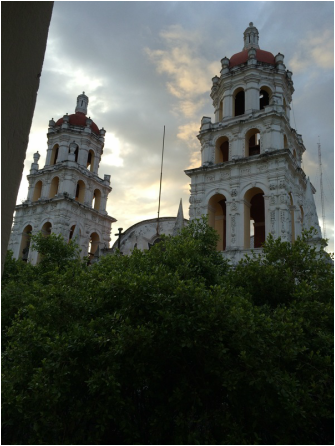Current Research
|
My research lies within the fields of sociolinguistics and applied linguistics. I address the interactions between linguistic and cultural practices in contexts in which Spanish and English are in contact with each other in the United States. I am currently engaged in community-based work to address language barriers that affect Latinos in healthcare contexts. I am also writing a book on ideology and identity in Spanish heritage language learning. My work in these two areas is described below.
|
Health Equity for Spanish speakers in the U.S.
My research addresses health care language access for Spanish speakers in the United States. I founded a coalition called Alce su voz to amplify community voices and develop a response to community language access needs. One way that we have done this is by creating a video to share Spanish-speakers' experiences with healthcare in Kansas; I also recently co-authored a language access brief for state policy makers. My scholarly work on language access has appeared in Applied Linguistics, Hispanic Healthcare International, and the Emergency Medicine Journal. Additionally, my colleagues and I presented a live webinar on language access in U.S. Latino communities during COVID-19 on May 20, 2020.
Language Ideologies and Linguistic Identity in Heritage Language Learning
This book project addresses the construction and negotiation of language ideologies and linguistic identities in Spanish heritage language classrooms and considers the ways in which heritage language classroom discourse is embedded in a wider social world. Drawing on ethnographic research on the discursive practices of students and instructors of university heritage language courses, I examine how the participants construct and negotiate discourses about language and language-related identities through different kinds of interaction within and outside of the classroom. In particular, I consider the role of competing discourses on the value of the Spanish language and certain varieties of Spanish in the ways students position themselves and are positioned as certain kinds of language experts and novices. Illustrated by cases studies of students with diverse linguistic backgrounds and reasons for studying Spanish, I highlight the relationship between classroom discursive practices, the practices of the communities in which students participate outside of the classroom, and students’ engagement in language learning.
The project builds on my dissertation study and my previous publications in Spanish in Context, Language and Intercultural Communication and the Journal of Language, Identity and Education.
My research addresses health care language access for Spanish speakers in the United States. I founded a coalition called Alce su voz to amplify community voices and develop a response to community language access needs. One way that we have done this is by creating a video to share Spanish-speakers' experiences with healthcare in Kansas; I also recently co-authored a language access brief for state policy makers. My scholarly work on language access has appeared in Applied Linguistics, Hispanic Healthcare International, and the Emergency Medicine Journal. Additionally, my colleagues and I presented a live webinar on language access in U.S. Latino communities during COVID-19 on May 20, 2020.
Language Ideologies and Linguistic Identity in Heritage Language Learning
This book project addresses the construction and negotiation of language ideologies and linguistic identities in Spanish heritage language classrooms and considers the ways in which heritage language classroom discourse is embedded in a wider social world. Drawing on ethnographic research on the discursive practices of students and instructors of university heritage language courses, I examine how the participants construct and negotiate discourses about language and language-related identities through different kinds of interaction within and outside of the classroom. In particular, I consider the role of competing discourses on the value of the Spanish language and certain varieties of Spanish in the ways students position themselves and are positioned as certain kinds of language experts and novices. Illustrated by cases studies of students with diverse linguistic backgrounds and reasons for studying Spanish, I highlight the relationship between classroom discursive practices, the practices of the communities in which students participate outside of the classroom, and students’ engagement in language learning.
The project builds on my dissertation study and my previous publications in Spanish in Context, Language and Intercultural Communication and the Journal of Language, Identity and Education.
